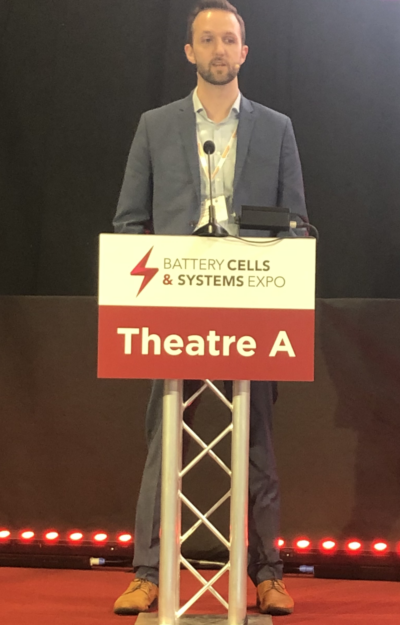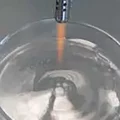Four battery developers have won £1.5 million ($1.9 million) in funding from the UK’s Faraday Battery Challenge. Projects involve cylindrical and pouch cell technologies. They will bring advanced lithium titanate oxide battery technology and a new cathode active material (CAM) to the UK.
Thomas Bartlett, deputy director of the Faraday Battery Challenge told the Battery Cells & Systems Conference in Birmingham on Thursday that the funding will go towards scale-up.
Volklec, a Coventry-based manufacturer incorporated in 2023, has plans to manufacture batteries for on-road, off-highway and track vehicles. It is working with the UK Battery Industrialisation Centre (UKBIC ).
Imran Khatri, Volklec’s founder and CEO, told BEST the company is taking on a production line at UKBIC to make EV batteries. It also backed by the UK-based investment company, Frontive Group.
The company will develop batteries for the UK automotive market, in particular the diverse array of small volume and niche vehicle manufacturers. Volklec’s product development and rapid route to scale-up provides a critical component in the roadmap to giga-scale production.
Khatri said Volklec has been many months and significant investment in the making. Its initial focus is on the automotive industry, then intends to look at the broader electrification markets.
Sean Gilgunn, UKBIC managing director, said businesses can develop their battery manufacturing processes at its facility at the scale they need to move to industrial production.
Other funding winners include Altilium, which plans to demonstrate battery cell manufacturing at scale using sustainable, low-carbon CAM from recycled end-of-life EV batteries from its pilot CAM plant and EV battery recycling innovation centre in Plymouth, England.
Nyobolt is commercialising ultra-fast charging, high power battery technologies for applications ranging from industrial to automotive and heavy duty off-highway. It will build on experience gained during previous activity at UKBIC to optimise the quality and speed of manufacturing electrode material at giga-scale.
Snapfast and Grinergy from South Korea will transfer advanced LTO technology for pouch cell manufacturing to the UK. LTO batteries are long lasting, with up to 90% of the batteries recycled. They do not suffer from thermal runaway and are stable at a range of temperatures (-30°C to 60°C).
Photo: Thomas Bartlett, deputy director of the Faraday Battery Challenge, announces £1.5 million in new funding












